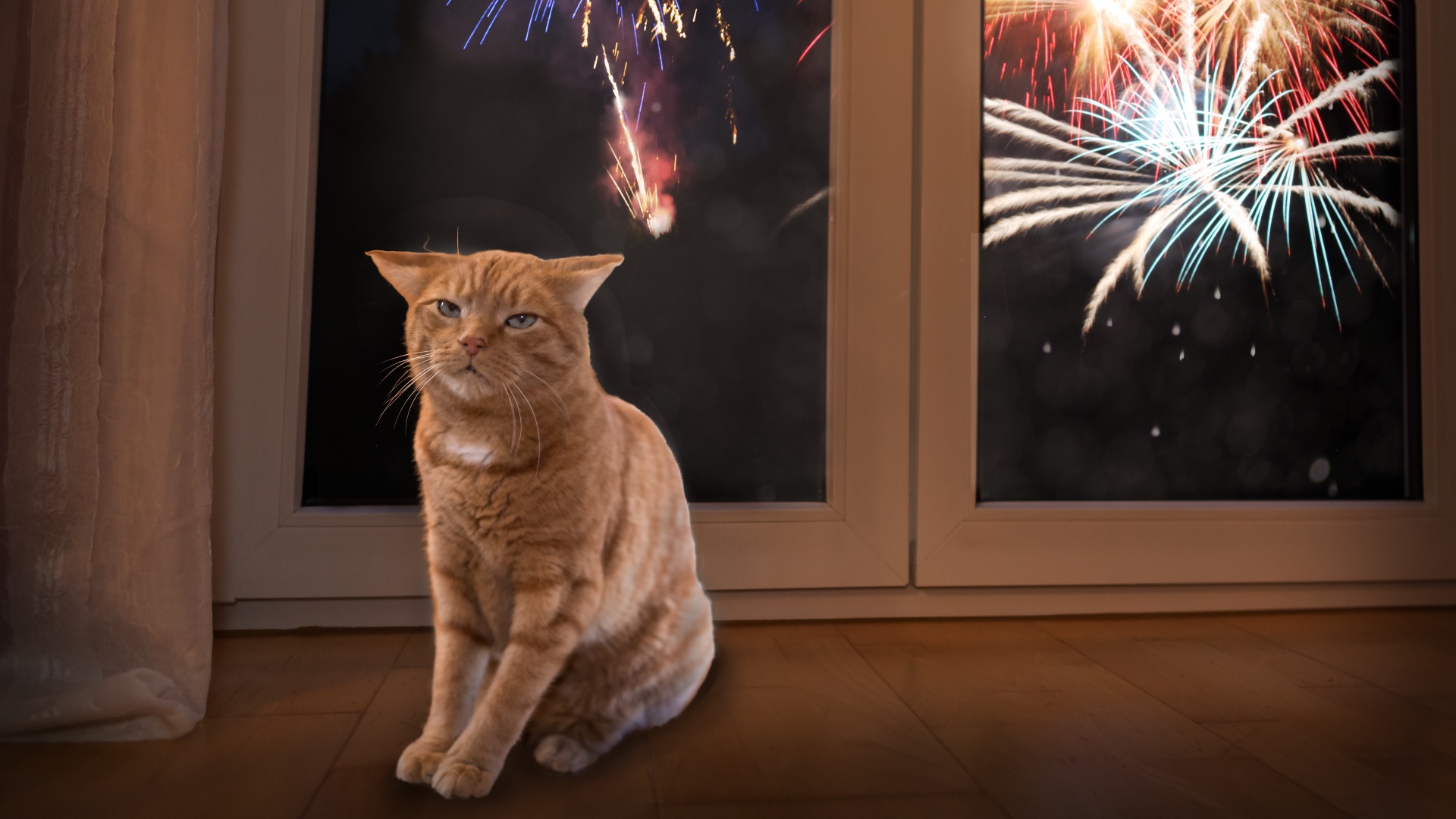
If you're anything like us, there's nothing you love more than seeing the evening sky filled with color. But while fireworks are a beautiful sight to behold, for our pets, the loud noises and bright lights can be downright scary.
Whether you're after tips on how to calm a scared cat or it's advice on ways to calm your dog during fireworks that you're after, you'll find the thoughts shared below by registered vet technician and certified cat behavior consultant, Tabitha Kucera, extremely helpful.
Although she now spends her days working with cats, Kucera has a wealth of experience working with dogs, so regardless of whether you have a feline friend or a canine companion in your family, you'll find her Instagram post below super useful. For additional canine-specific information, check out our 4th of July dog safety guide.
1. Create a safe place: Kucera says that it's important your pet has access to a quiet area while the fireworks are going off. "If your cat or dog has a place they already go when fearful of sounds, create the safe place there," she advises. "Many animals go into the basement or bathroom since it tends to be quieter in these areas. A safe place can be a comforter in a bathtub, tossing a blanket between a table and a couch, a room, or a crate."
While it can be tempting to close the door on the bathroom or crate, Kucera warns against this saying that it can actually make the fireworks experience even more stressful for pets. Instead, always leave doors open and give your animal options so they can choose where to hide.
2. Minimize stressful stimuli and offer your pet their favorite things: "Limit sights and sounds by keeping windows closed and closing window blinds and/or curtains," Kucera says. You can also play classical music or white noise, as well as offering your pet delicious treats and engaging them in a game with their favorite plaything.
3. Assess your animal's body language and provide comfort: "If your animal is hiding, do not pull them out of their safe place or force contact," Kucera stresses. However, if they seek comfort or are in a physical space that allows you to provide it, it's important to do so. "When your pet gets scared by a trigger, and reacts with growling and hissing, they are simply exhibiting the emotions they're feeling. This is not a voluntary behavior. Comforting your pet when they are fearful is not going to reinforce their fear, but it may help take it away."
4. Utilize calming aids: While calming aids can be very helpful, Kucera acknowledges that for some pets, medication may be required. "You can discuss this with your vet," she says. "It's important to approach noise phobia and firework anxiety with a multimodal approach including safe places, Behavior modification, calming aids, etc. Every animal is an individual, when using these, it's important to assess body language and see if fear and stress decrease."
5. Keep your animal indoors: Many animals find fireworks incredibly distressing, which is why keeping them inside is crucial. When spooked, pets that are outside may runaway in order to seek safety and be unable to find their way back. We recommend walking dogs late afternoon/early evening before the fireworks begin and ensuring all pets remain indoors overnight.







